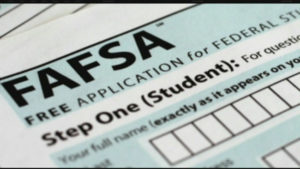Dear Liz: I have one American Express card and two Visa cards, all of which I have held for many years. I received notice that my American Express card was being converted to a Visa card. I do not want a third Visa card but have no choice. For credit score purposes, will this conversion appear to be a closing of my old card and an application for a new one? Obviously, closing a long-held credit card and applying for a new one will affect my excellent credit score, which is 830. If I decided to apply for a new American Express card, how would that impact my score?
Answer: Conversions from one issuer to another can have a temporary negative impact on your credit scores as one account is closed and another opened. The effect should be minor as long as you have other open, active accounts.
Within a month or two, the new account should show the same history as the old one, and your scores should recover. (You have more than one credit score, by the way, and your scores change all the time. As long as they’re generally above 760 or so, you should get lenders’ best rates and terms.)
The type of card usually matters less than the benefits associated with the card. If those benefits are useful to you and are enough to offset any annual fee, consider keeping the card. Its long history and credit limit are likely helping your scores.
That doesn’t mean you have to keep a card you really don’t want. The fewer cards you have, though, the more careful you probably need to be about closing one.
You can still add an American Express or other card to your portfolio. Adding a new card typically dings your scores less than five points. The effect is temporary, and the new account could contribute positively to your scores over time.
 Today’s top story: How video games can level up kids’ money skills. Also in the news: How Twitter became the unlikely hero in a rental car fiasco, what to buy (and skip) in September, and 5 steps to turn your side gig into a full-fledged business.
Today’s top story: How video games can level up kids’ money skills. Also in the news: How Twitter became the unlikely hero in a rental car fiasco, what to buy (and skip) in September, and 5 steps to turn your side gig into a full-fledged business. Today’s top story: Where to turn when a natural disaster upends your finances. Also in the news: 5 ways women can combat investing disadvantages, Ask a Travel Nerd on when to book holiday travel, and why your rent is often more than a mortgage payment.
Today’s top story: Where to turn when a natural disaster upends your finances. Also in the news: 5 ways women can combat investing disadvantages, Ask a Travel Nerd on when to book holiday travel, and why your rent is often more than a mortgage payment.  Today’s top story: How to get free money for college and help to find it. Also in the news: 4 alternatives to big banks, workplace scams to watch out for, and unexpected things you could buy with crypto.
Today’s top story: How to get free money for college and help to find it. Also in the news: 4 alternatives to big banks, workplace scams to watch out for, and unexpected things you could buy with crypto.